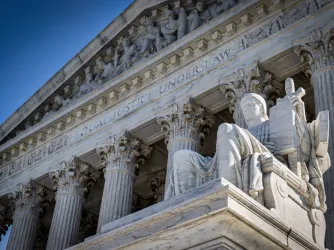Table of Contents
Princeton Open Campus Coalition Seeks to Revive ‘Interpersonal and Intellectual Health’ at Old Nassau

I have written on numerous occasions over the years about the state of free speech at my alma mater, Princeton University.
During my own years at Princeton (I graduated in 1999, which suddenly sounds a lot longer ago than it used to!), I found the climate for free speech to be generally supportive. Over those four years, I learned and grew a great deal from the many in-depth, no-holds-barred conversations I had with my diverse group of friends at the university. It was an experience that helped instill in me the belief that unfettered free speech is critical to the mission of any university.
Unfortunately, despite my own positive experience, not all is well for free speech at Princeton. There have been some high notes recently, most notably a successful faculty-led effort to adopt a version of the University of Chicago’s statement on free expression. But as is the case around the country, there has also been hostility towards free speech expressed by Princeton students (you can read here about my own disheartening experience speaking on a panel there last year).
And throughout it all, Princeton has maintained policies that impermissibly restrict students’ right to free speech on campus.
FIRE has expressed its concerns with these policies for many years, but the administration has remained defensive. When I wrote to then-President Shirley Tilghman most recently in 2011, she defended Princeton’s policies, noting that they were “designed to protect the dignity and respect of each member of the community,” and that no one had expressed “concerns or complaints” about their ability to speak freely on campus. But of course, this is precisely the nature of the chilling effect of speech codes—you can’t know whose speech is affected, because many people simply stay quiet.
Now, a student group called the Princeton Open Campus Coalition (POCC) has joined the fight for speech code reform at Princeton. The POCC was formed last fall in the wake of student protests on campus. In an open letter to this year’s entering class, the POCC referenced those protests and described itself as follows:
Throughout the ordeal, we discovered how harmful the protest had been to interpersonal and intellectual health on campus. Students who approached the protesters with honest questions were mocked and shooed away. Most students feared disagreeing with the protest in public, lest they be branded racists or otherwise slandered in front of classmates. We formed POCC to give students an equal opportunity to be heard in a sustainable campus climate, without shutting down controversial ideas or unpopular discussions. We believe in an open campus, where we can listen to and challenge even the most uncomfortable ideas, judging them against our best ideas in a supportive communal environment.
On Monday, the POCC called on Princeton to revise its speech codes and earn a “green light” rating from FIRE. The POCC specifically cited Princeton’s ban on verbal conduct that “demeans, intimidates, threatens, or injures another because of personal characteristics or beliefs or their expression,” stating that
The term “demeans” is inherently subjective and grants a heckler’s veto to those who *feel* demeaned (i.e. offended) by someone’s verbal actions. It is especially worrisome that the policy prohibits demeaning statements based on the expression of personal beliefs. For instance, repeatedly calling a supporter of segregation a “bigot”—certainly a demeaning term—may violate the policy even though the label is surely warranted.
They are absolutely right on this point. In addition to that policy, Princeton also maintains two other policies that earn a red light rating from FIRE. First, the university prohibits not only sexual harassment but also a vague category of conduct it calls “Inappropriate Conduct Related to Sex, Gender Identity, or Gender Expression.” This provision bans “unwelcome conduct” that may not rise to the level of sexual harassment, such as “comments” that are “sexually offensive.” But if those comments do not rise to the level of severity and pervasiveness necessary to constitute sexual harassment, they are protected speech—which Princeton, having squarely committed itself to the protection of free expression, must allow.
Princeton’s information technology usage policy, meanwhile, bans the transmission of “inappropriate images, sounds or messages that are clearly threatening, hostile, or harassing.” While the prohibitions on threats and harassment are fine, the ban on “hostile” messages is not. The university may have been trying to get at conduct that creates a hostile environment (which, incidentally, is already covered under the ban on harassment), but the effect of a total ban on “hostile” messages is to give the university discretion to punish any angry or uncivil communications sent electronically. And given the volume of student speech and debate that takes place online, the impact of this restriction is potentially quite significant.
FIRE wholeheartedly supports the POCC’s call for speech code reform at Princeton. While the administration has not been receptive to these calls in the past, perhaps there is reason to be hopeful in light of the university’s recent adoption of the Chicago Statement, which provides a renewed opportunity for the university to deepen its commitment to free speech. We would of course be happy to work with the administration on the necessary changes.
Recent Articles
Get the latest free speech news and analysis from FIRE.

The federal charges against Don Lemon raise serious concerns for press freedom

The American people fact-checked their government

California prohibits its teachers from talking about a student's gender identity to their parents. That raises First Amendment concerns.
